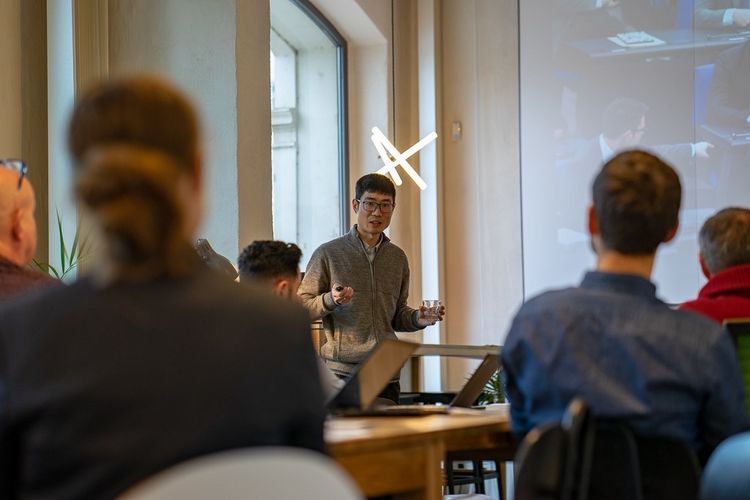This is the second Shanghai Start-up Class organised by Uhlig and his colleagues as part of the Business and Innovation Hub Germany-China, or DC-Hub for short, which is a sub-project of the international SEPT programme at Leipzig University. This year, the twelve young companies’ pitches rounded off a Germany-China start-up forum set up by Uhlig’s team from 24 to 25 January. In addition to the two workshops “Doing Business in China” and “Aspects of Intellectual Property Rights in China”, which took place at Leipzig’s Basislager Coworking, a China Alumni Night in the LVZ’s domed hall gave forum participants the chance to meet the alumni of the Shanghai Start-up Class of 2018 and also network with Chinese market experts, such as Daniel Eckmann, Head of Market Entry & Business Development at the German Chamber of Commerce in Shanghai.
Events of this kind are possible thanks to the DC-Hub’s integration into DCHAN, the German-Chinese Alumni Networks. They are funded by the German Federal Ministry of Education and Research (BMBF) and aim to promote scientific collaboration between Germany and China by utilising German students and scholars who have spent time working in China and already established a network of contacts there. In this context, DCHAN supports seven specialist areas, such as mechanical engineering, neuroscience and logistics, with the SEPT programme’s DC-Hub assigned to the area of entrepreneurship. “We are very proud to be part of DCHAN with the DC-Hub and are delighted to have the opportunity to pave the way for even more companies to head to Shanghai this year. The application phase for the next Shanghai Start-up Class begins in April and we are already excited to see which young entrepreneurs will apply,” explains Uhlig.
Companies in the Shanghai Start-up Class of 2019:
CrocoDisp (Freiburg)
Genuine German GmbH (Berlin)
Neuform GmbH (Berlin)
ProGlove (Workaround GmbH) (Munich)
Mabino (Schöpstal)
StoryBaker UG (Berlin)































































